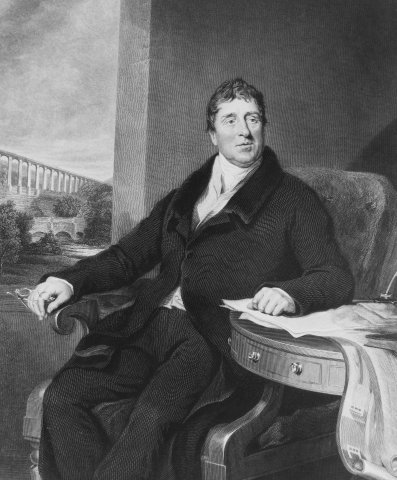Roads 1750 to 1900
For a long time roads were little more that dirt tracks that would be muddy or frozen solid, which made them extremely difficult to journey down for much of the year.
Each parish was legally responsible for the upkeep of the roads that ran through their area. It was also required for men to give up six days of the year to help with road maintenance, but few had an interest in doing so because they seldom used the roads themselves.
The Industrial Revolution changed all this as it saw far greater demand for a strong transport system. So, in 1663, the Turnpike Act was passed by Parliament.This act was first trialled in three counties and it enabled magistrates to charge road users - this money was in turn reinvested in the upkeep of the roads.

Following on from the 1663 Act, several ‘Turnpike Trusts’ were created - these were companies who took responsibility for collecting the money, with profits the split between the shareholders (which could include members of the public) and the cost of road maintenance. Tolls were established as the means of gathering this money.
Even though the quality of roads improved, toll gates proved very unpopular with the public. Some people would jump over the gates while in some instances the gates themselves were destroyed - Parliament created a new law that meant anyone caught destroying a toll gate could be executed.
Thomas Telford and John McAdam are known for improving Britain’s roads.
Telford was of the view that if you built high quality roads in the first place they would last for longer and require far less maintenance. McAdam’s, meanwhile, focused more on cheap roads that were quicker and easier to build - his influence on roads in Britain is why his name was given to ‘tarmac’.
The superior roads made it a lot easier for industries to transport their goods. However, those living in the cities were less impressed; turnpikes meant goods coming in from rural areas were more expensive because they had to take the cost of tolls into consideration.
See also: Canals 1750 to 1900
MLA Citation/Reference
"Roads 1750 to 1900". HistoryLearning.com. 2025. Web.
